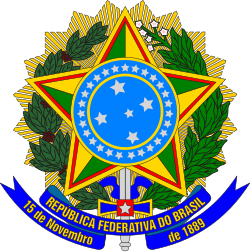| |||||||||||||||||||
503 members of the electoral college 252 electoral votes needed to win | |||||||||||||||||||
|---|---|---|---|---|---|---|---|---|---|---|---|---|---|---|---|---|---|---|---|
| |||||||||||||||||||
| |||||||||||||||||||
| This article is part of a series on the |
 |
|---|
Indirect presidential elections were held in Brazil on 15 January 1974. They were the fourth presidential elections held under the military government and were carried out through an electoral college.

